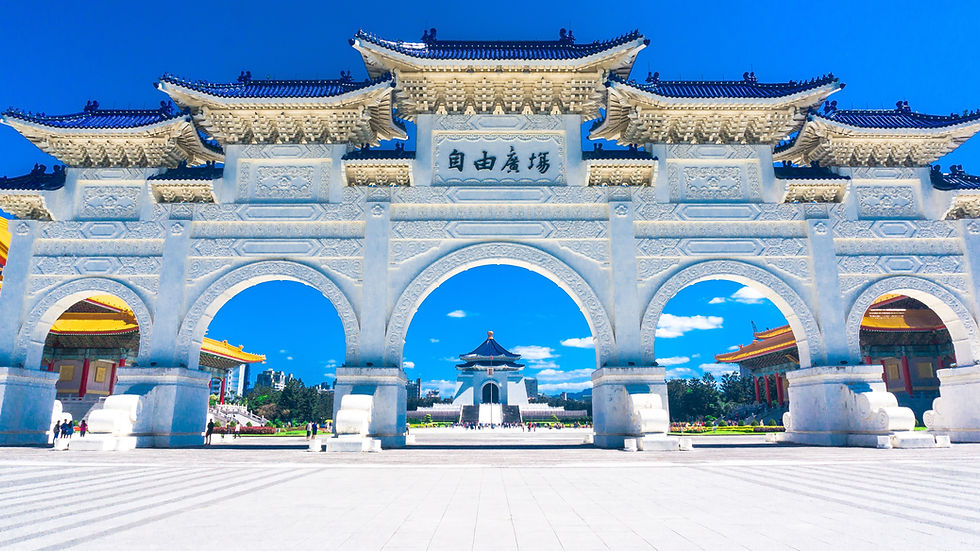Beijing’s Play: Korean Content Ban Lifted Amid Tensions
- Brian Sioux

- Feb 21, 2025
- 3 min read
Updated: Feb 24, 2025
China’s reported decision to lift the eight-year-long "Korean Content Ban" by May 2025 marks a significant shift in its foreign policy strategy, particularly amid escalating U.S.-China tensions under Trump’s second term and recent political changes in South Korea. The ban, imposed in 2016 following South Korea’s deployment of the U.S. THAAD missile defense system, had long been an unofficial but effective measure restricting the import of Korean cultural content, including K-pop, dramas, films, and gaming. This move led to a significant downturn in economic ties, affecting South Korean entertainment industries, tourism, and major retailers like Lotte, which faced regulatory and consumer backlash in China. Now, China’s decision to ease these restrictions is not merely a diplomatic overture but a calculated step to recalibrate its regional strategy in response to shifting geopolitical and economic pressures.
With the Trump administration doubling down on its “America First” foreign policy, increasing tariffs, and reinforcing security alliances in the Indo-Pacific, China is adjusting its approach toward regional partners, particularly U.S. allies like South Korea. By improving ties with Seoul, Beijing seeks to prevent South Korea from fully aligning with Washington’s containment efforts. Unlike in previous years when China relied on economic coercion, the current strategy appears to lean more toward pragmatic engagement, using cultural and trade diplomacy to foster goodwill. With Trump expected to pressure South Korea on semiconductor restrictions, defense spending, and tech decoupling from China, Beijing is seizing the opportunity to offer Seoul an economic incentive to reconsider its foreign policy positioning.
At the same time, South Korea is undergoing a crucial political transition with its parliamentary elections set for April 2025. President Yoon Suk-yeol’s conservative administration has aligned closely with Washington, strengthening military ties and advocating for stricter controls on Chinese technology firms. However, opposition parties that favor a more balanced approach to China are gaining traction, with many South Korean voters and businesses showing concern over the economic risks of deteriorating relations with Beijing. China’s move to lift the Korean Content Ban could be seen as a strategic effort to sway public sentiment and reshape South Korea’s domestic debate on its future engagement with China and the U.S.
Beyond political maneuvering, China also faces its own economic challenges, particularly slowing consumer demand and weakened investor confidence. Reviving access to South Korean entertainment and cultural products aligns with China’s need to stimulate domestic consumption and maintain the appeal of its market for international businesses. Korean content has continued to thrive globally despite China’s restrictions, and the growing demand within China itself has never disappeared. By reopening this market, Beijing hopes to not only strengthen economic ties with South Korea but also boost its own entertainment and digital economy sectors.
For South Korea, the lifting of the ban presents both opportunities and risks. While regaining access to the Chinese market will benefit entertainment companies, gaming firms, and tourism operators, it also places Seoul in a complex diplomatic position. With Washington expecting stronger commitments on defense and technology restrictions against China, South Korea must carefully balance its security obligations with the U.S. and its economic interests with Beijing. The challenge for Seoul is how to navigate this evolving geopolitical landscape without jeopardizing its strategic alliances or economic partnerships.
China’s decision to lift the Korean Content Ban reflects a broader shift from aggressive “Wolf Warrior” diplomacy to a more calculated, engagement-driven approach. However, it does not signify a fundamental change in Beijing’s long-term strategy. Rather, it is a tactical move designed to create diplomatic flexibility, prevent further regional isolation, and mitigate economic vulnerabilities amid growing U.S.-China tensions. The extent to which this move fosters a lasting reset in China-South Korea relations remains uncertain. Much will depend on South Korea’s domestic political outcome and how the U.S.-China competition continues to unfold in the years ahead.
Become an AFAI supporter today. Support AFAI for stronger U.S.-Asia ties!



Comments